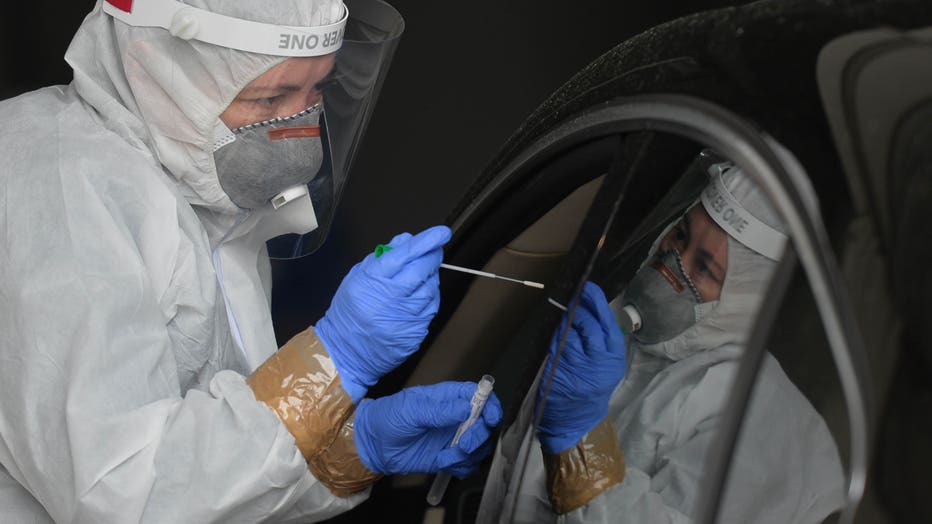Coronavirus deaths top 300,000 worldwide, according to Johns Hopkins
The number of deaths worldwide that have been attributed to COVID-19 reached 300,000 on Thursday, according to the most recent data from the Johns Hopkins Coronavirus Resource Center.
There have been more than 4.4 million confirmed cases across the globe, including 1.4 million in the United States, based on Johns Hopkins data reported May 14. The U.S. continues to have more confirmed cases of the novel coronavirus than any other country.
There have also been more than 1.5 million reported recoveries across the world from the virus.

A laboratory worker uses a swab to collect a sample for coronavirus testing at a drive-thru testing center in Krakow, Poland on May 13, 2020. (Photo by Artur Widak/NurPhoto via Getty Images)
RELATED: CoronavirusNOW.com, FOX launches national hub for COVID-19 news and updates
In the U.S., the viral outbreak continues to impact workers with nearly 3 million people applying for unemployment benefits just in the last week. In total, roughly 36 million people have filed for jobless aid in the two months since the coronavirus forced millions of businesses to shrink their workforces and close their doors amid stay-at-home orders.
According to the U.S. Department of Labor, the number of first-time applications has actually declined for six straight weeks, suggesting that the number of companies reducing their payrolls is gradually diminishing.
But based on historical standards, the latest figures show that the numbers remain enormous — and that a decade’s worth of job growth was wiped out in just a single month. The government said the unemployment rate soared to 14.7% in April, the highest rate since the Great Depression.
RELATED: Jobless rate spikes to 14.7%, highest since Great Depression
Meanwhile, states have began easing lockdowns, but are doing so in varied ways. Ohio has permitted warehouses, most offices, factories, and construction companies to reopen, but restaurants and bars remain closed for indoor sit-down service.
A handful of states have gone further, including Georgia, which has opened barber shops, bowling alleys, tattoo parlors and gyms. South Carolina has reopened beach hotels, and Texas has reopened shopping malls.
In Wisconsin, the high court struck down on Gov. Tony Evers’ extension of the stay-at-home order, ruling that his administration overstepped its authority by not consulting legislators. The ruling means the state is essentially reopened ahead of the May 26 expiration date of Evers’ order, lifting caps on the size of gatherings, allowing people to travel as they please and allowing shuttered businesses to reopen.
President Donald Trump called on governors across the country to work to reopen schools that were closed, taking issue with Dr. Anthony Fauci's caution against moving too quickly in sending students back to class.
RELATED: US could face COVID-19 rebound in 'darkest winter in modern history,' whistleblower scientist warns
The president accused Fauci of wanting “to play all sides of the equation," a comment that suggested he is tiring of the nation's top infectious disease expert.
This, while more than a dozen states were investigating cases of a mysterious and rare inflammatory illness found in children that may be linked to the novel coronavirus. The illness affects blood vessels and organs and has symptoms similar to Kawasaki disease and toxic shock. Three children in New York have died of the syndrome.
Doctors still believe that most children with COVID-19 develop mild illness.
For most people, the coronavirus causes mild or moderate symptoms — including fever and cough that clear up in two to three weeks. For some, especially older adults and people with existing health problems, it can cause more severe illness, including pneumonia and death. The vast majority of people have recovered.
One of the best ways to prevent spread of the virus is washing your hands with soap and water.
This story was reported from Cincinnati. The Associated Press contributed.


